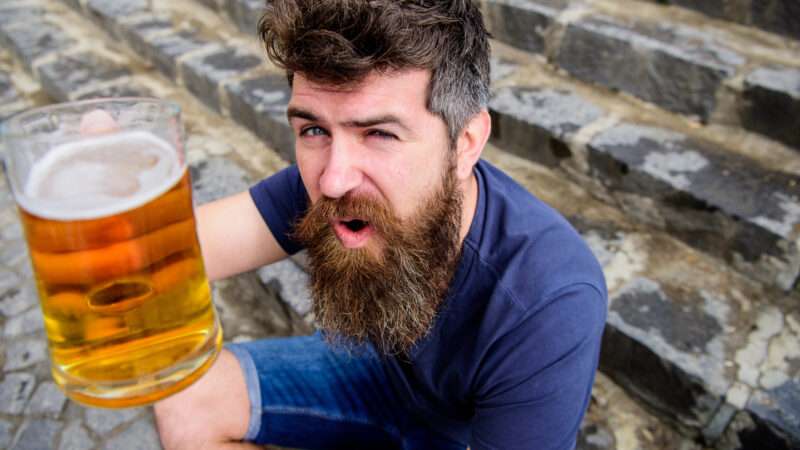
Colorado had three alcohol-related deregulatory measures on November’s ballot. Two measures did not pass. Proposition 124 would have expanded the freedom for retail liquor store owners to own an unlimited number of licenses. State law currently caps that number at three. The measure, which would have been phased incrementally over the next 15 years, fell by a nearly 2-1 margin.
Strong opposition and Chicken Little-type pleas from owners of independent liquor stores helped kill the measure. “Colorado voters spoke loud and clear that they prefer locally owned stores who provide better service than out-of-state corporate interests who want to have absolute control over the Colorado market,” Carolyn Joy, owner of Joy Wine and Spirits, said in a statement, the Denver Post reported.
Another failed Colorado measure, Prop. 126, would have expanded consumer choice by allowing licensed alcohol retailers to offer expanded alcohol delivery services or work with existing delivery services and would have made permanent to-go alcohol measures put in place during the Covid pandemic. As I’ve detailed, many states have moved to make permanent their own to-go cocktails laws. That’s one reason Prop. 126’s tight loss was a surprise—with one supporter of to-go booze saying they were “shocked” by the results. Polls released just a week before the election showed Prop. 126 was likely to pass. The Lamar Ledger called the vote “a surprising turnaround” for a ballot measure “that appeared destined to cruise to victory on Election Day.”
Though votes are still being counted in Colorado’s third ballot measure—Prop. 125—supporters said this week they had eked out a victory. The measure would allow any retailer licensed to sell beer to also sell wine. Supporters, led by grocers, painted the measure as what it is—a way for grocers to provide more choices to consumers.
“They want Starbucks, a deli, a COVID booster shot, organic produce and a specialty cheese section at the grocery store, along with beer and wine,” Sheila MacDonald, of the group Wine in Grocery Stores, told Colorado Public Radio this week.
In Massachusetts, voters rejected a hodgepodge alcohol ballot measure that would have done a host of largely unrelated things—some good, others not so much. The measure, Question 3, would have gradually increased the number of licenses an alcohol retailer could hold. That’s good. But it also would have prohibited consumers from using automated or self-checkout to purchase alcohol. Not so good.
Another key element of the measure would have changed state law to stop making it needlessly difficult for out-of-state drinkers to buy alcohol legally in the state. Under state law, a Massachusetts-issued driver’s license is the only driver’s license the state will accept as a form of identification to purchase alcohol. Question 3’s defeat means, as WBUR reports, “out-of-state IDs still are no good for booze purchases.” Most out-of-town sports fans will still have to carry and hand over a passport to buy a beer at Fenway Park.
Not all of the nation’s alcohol-related ballot measures were statewide. In Atlanta, residents voted by a 4 to 1 margin to expand the hours for Sunday retail and restaurant sales of beer, wine, and liquor. Victory in an unrelated referendum in Snellville, an Atlanta suburb, will let package stores buy liquor licenses.
In addition to these various ballot measures, local governments have also been busy as ever regulating alcohol—with markedly different aims and results. The city council in Durham, North Carolina, just made it easier for residents to enjoy al fresco drinking. The unanimous vote comes a year after state lawmakers allowed cities and towns to create “social districts” exempt from general open-container laws. The Duke Chronicle reports that several North Carolina cities—including Charlotte, Greensboro, and Raleigh—have also voted to create these social districts, expanding the ability of state residents to enjoy drinking and walking at the same time. Marcella Middleton, a Durham resident, told the Chronicle that she understands concerns about potential challenges, such as public intoxication. Still, she supported the measure because, she says, “you gotta let people be grown.”
The city council in Ft. Worth, Texas, would likely disagree with Middleton. This week, they adopted a ban on open containers in what North Carolina would call a “social district.” So much for letting people be grown.
Recent alcohol-related ballot measures and local legislation are a classic mixed bag. The failure to loosen alcohol regulations in Colorado and Massachusetts—and backsliding in Texas—were countered by victories elsewhere in Colorado, Georgia, and North Carolina. Overall, the modesty of these reform proposals and their relative lack of success suggest states still have a long way to go in making alcohol sales easier and fairer for sellers and consumers alike.
The post Colorado Voters Rejected Booze To-Go and Expanded Alcohol Delivery appeared first on Reason.com.
from Latest https://ift.tt/Yu8Cj3K
via IFTTT